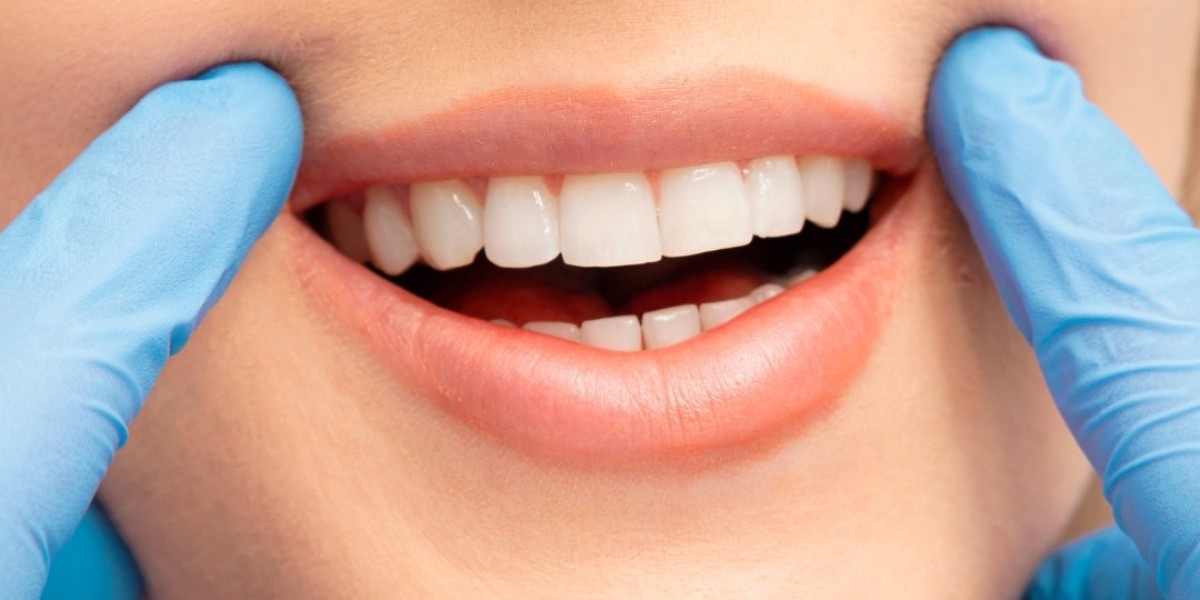In the age of social media and the ever-growing desire for the perfect smile, professional teeth whitening has become increasingly popular across Australia. Whether it's for an upcoming wedding, job interview, or just to feel more confident, many people are turning to dental professionals to brighten their smiles. But with all this interest comes an important question: Is professional whitening bad for your teeth? Let’s explore the science behind teeth whitening, the potential risks, and the truth about whether this cosmetic procedure is safe in the long term.
What is Professional Teeth Whitening?
Professional teeth whitening refers to procedures carried out by a licensed dentist, often using stronger bleaching agents than those found in over-the-counter products. Typically, hydrogen peroxide or carbamide peroxide is used to penetrate the enamel and break down stains caused by coffee, wine, smoking, or ageing.
Unlike store-bought whitening kits, in-chair treatments are tailored to your specific needs and dental history. This ensures both safety and effectiveness, which is a key reason many people opt for professional whitening over at-home solutions.
How Does Whitening Work?
To understand the effects of whitening, it’s helpful to know a bit about tooth structure. Your teeth are made up of multiple layers: enamel (the hard outer layer), dentin (a softer, yellowish layer beneath), and the pulp (where nerves and blood vessels live). Most stains develop in the enamel or just under it.
Whitening agents work by penetrating the enamel and oxidising stain compounds, effectively breaking them down so they become invisible. This gives teeth a whiter appearance without physically removing any enamel.
Is It Bad for Your Teeth?
The short answer? Not when done professionally and in moderation.
Scientific Findings
According to a range of dental studies, professional teeth whitening is generally safe when carried out under the supervision of a dentist. However, some temporary side effects can occur, including:
- Tooth Sensitivity: This is the most common side effect. Whitening agents can irritate the nerve endings in the dentin layer, making teeth more sensitive to hot or cold temperatures for a few days.
- Gum Irritation: If the whitening gel comes into contact with gums, it can cause temporary redness or discomfort.
- Enamel Weakening: This is where most concerns arise. High concentrations of peroxide can potentially dehydrate the enamel. However, studies show that any weakening is usually temporary and reversible with proper dental care.
What Dentists Say
Most dental professionals agree that the key to safe whitening is moderation and using products approved by regulatory authorities, such as the Australian Dental Association (ADA). Whitening too often, especially with over-the-counter or unregulated kits, can lead to long-term enamel erosion or gum damage.
The Role of Professional Supervision
The main advantage of professional teeth whitening is that it is customised to your dental health. Your dentist will assess your enamel thickness, tooth sensitivity, and oral hygiene before deciding on the strength and duration of the treatment. This reduces the risk of side effects and ensures you get optimal results without damaging your teeth.
Additionally, dentists often apply protective barriers to your gums and use fluoride treatments afterwards to minimise sensitivity and restore enamel strength.
Professional Teeth Whitening Cost in Australia
The professional teeth whitening cost can vary depending on where you live and the type of treatment you choose. On average, in-chair whitening can range from $300 to $1,000. While this might seem steep compared to at-home kits, it includes expert supervision, immediate results, and a reduced risk of complications.
There are also take-home kits provided by dentists that are more affordable, usually ranging between $200 and $400. These kits use custom-made trays and professional-grade whitening gels, offering a safer alternative to over-the-counter products.
It’s worth considering the long-term benefits of investing in a professional service versus the potential risks and inconsistent results of DIY methods.
Are There Any Long-Term Risks?
As of now, there is no substantial evidence to suggest that professional whitening causes permanent damage to healthy teeth. That said, if whitening is done too frequently or with improperly applied products, it can cause:
- Chronic sensitivity
- Thinning enamel
- Increased risk of cavities
Dentists generally recommend waiting at least 6 to 12 months between treatments, and avoiding highly acidic or staining foods in the days following a whitening session.
Tips for Maintaining White Teeth
To extend the life of your whitening treatment and reduce the need for future sessions, consider these tips:
- Brush twice a day with fluoride toothpaste
- Floss daily
- Avoid smoking and limit red wine, coffee, and tea
- Use a straw when drinking dark beverages
- Visit your dentist for regular cleanings
Summary
So, is professional whitening bad for your teeth? The science says no – as long as it’s done correctly, by a licensed professional, and in moderation. Temporary side effects like sensitivity or gum irritation are possible, but they’re usually mild and manageable. The long-term risks are minimal when compared to the benefits of improved self-confidence and a brighter smile. Although the professional teeth whitening cost may seem high, the investment pays off in safety, effectiveness, and peace of mind. If you’re considering a brighter smile, consult with your dentist first to ensure the treatment is right for you. With the right care and professional guidance, you can enjoy whiter teeth without compromising your oral health.






